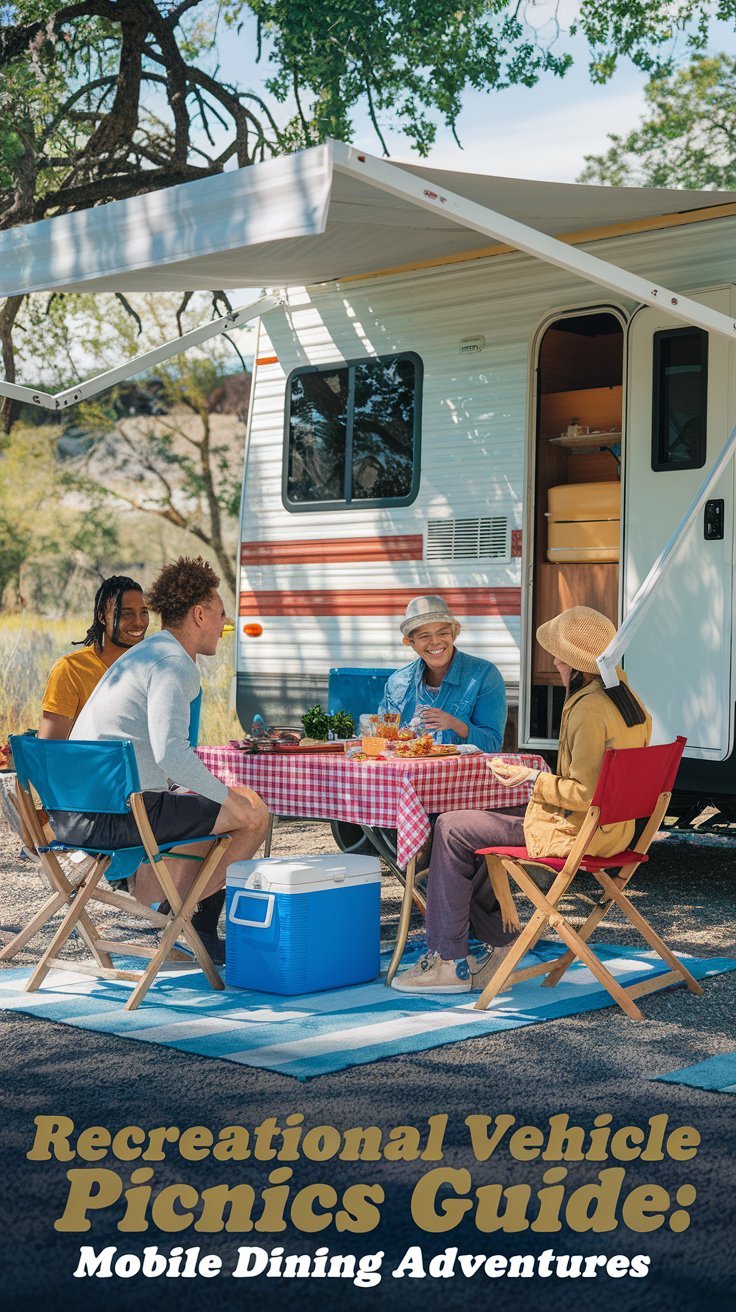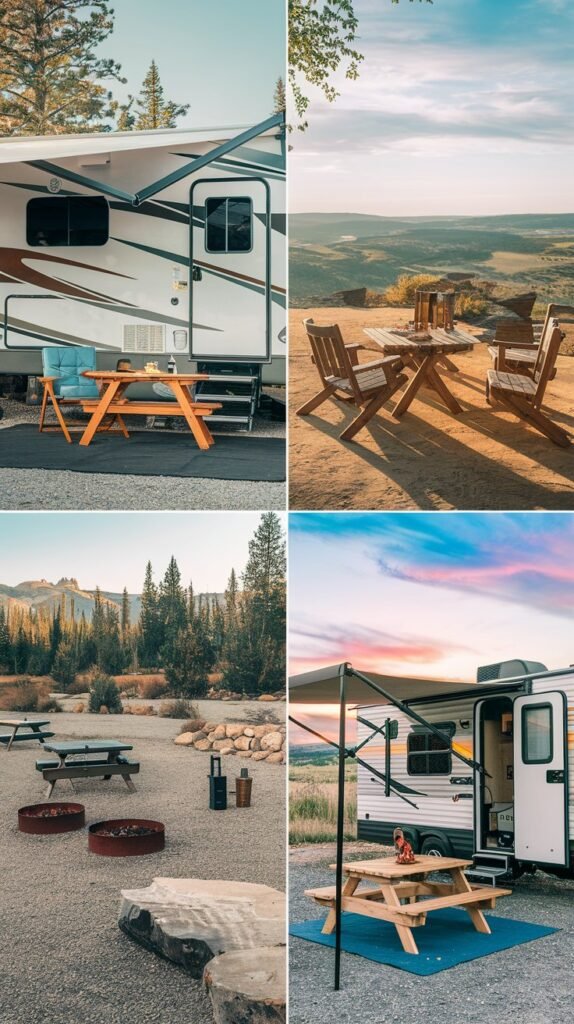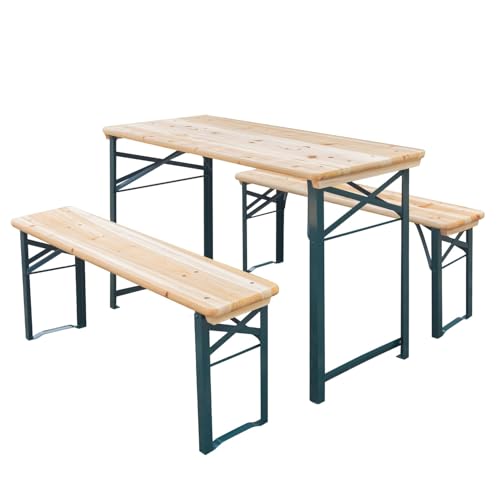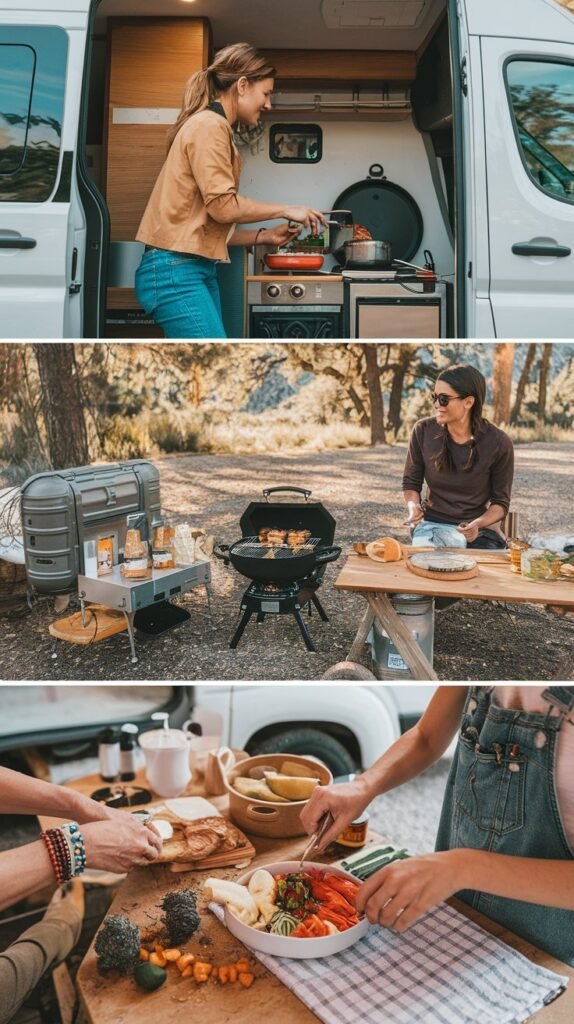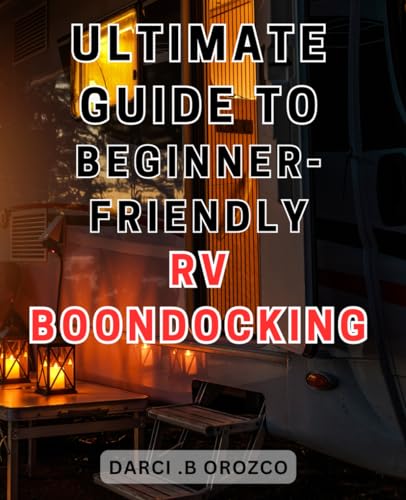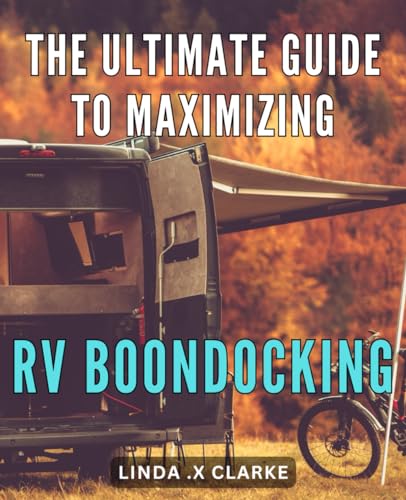Recreational Vehicle (RV) picnics offer a wonderfully versatile approach to outdoor dining, combining the freedom of mobile travel with the comfort of having your kitchen and dining area always at hand. These convenient celebrations bring together road-trip flexibility, home-like amenities, and scenic destination options in experiences that transform ordinary parking areas, campgrounds, or wilderness pull-offs into extraordinary dining adventures that can happen anywhere your wheels can take you.
Let’s explore how to create the perfect RV picnic that balances road-trip mobility with delightful outdoor dining success!
RV Picnic Planning Fundamentals
Establish the perfect foundation for your mobile outdoor celebration.
Understanding Modern RV Picnic Approaches
Creating enjoyable yet practical mobile dining experiences:
- Location Flexibility Priority: Choosing perfect settings anywhere
- Setup Efficiency Focus: Quick transformation to dining mode
- Storage Limitation Strategy: Space-conscious equipment choices
- Indoor-Outdoor Flow Planning: Seamless kitchen-to-table transitions
- Weather Adaptation Consideration: Protection options for variable conditions
- Multi-Purpose Equipment Emphasis: Tools that serve multiple functions
- Travel-Dining Balance: Maximizing time at destination
“RV picnics require a thoughtful balance between travel convenience and dining enjoyment,” shares Morgan, who specializes in mobile outdoor gatherings. “We approach these events with what we call ‘adaptive mobility’—creating dining experiences that leverage the RV’s unique advantages while acknowledging its constraints. The best RV picnics combine the convenience of bringing your kitchen with you and the joy of dining in locations impossible to reach with traditional picnic setups.”
Location Selection Strategy
Finding the perfect setting for RV-based enjoyment:
- Vehicle Access Assessment: Appropriate roads and parking
- Size Restriction Consideration: Length, height, weight limitations
- Reservation Requirement Research: Necessary advance bookings
- Amenity Availability Evaluation: Hookups, water, dump stations
- Scenic Value Prioritization: Views and natural beauty
- Privacy Factor Analysis: Appropriate separation from others
- Stay Duration Planning: Overnight options vs. day parking
“Selecting the right location creates the essential foundation for RV picnic success,” explains Riley, who plans mobile outdoor events. “We’ve found the most effective approach is what we call ‘informed accessibility’—identifying spaces that combine appropriate vehicle accommodation with exceptional dining settings. We particularly recommend researching not just if RVs are permitted, but specific length restrictions, whether advance reservations are required, and if seasonality affects access. The perfect RV picnic location balances practical needs like turning radius and parking surface stability with the scenic beauty that makes the journey worthwhile.”
Equipment and Setup Strategy
Maximizing limited space with efficient organization:
- Multi-Function Priority: Tools serving multiple purposes
- Compact Storage Focus: Collapsible and nestable items
- Weight Distribution Consideration: Proper balance for travel
- Setup Speed Planning: Quick transition from driving to dining
- Indoor-Outdoor Flow Strategy: Efficient movement between spaces
- All-Weather Adaptation: Flexibility for condition changes
- Fuel and Power Management: Energy sources for cooking needs
“RV picnic equipment requires specialized consideration that balances limited storage with dining quality,” shares Jordan, who designs mobile outdoor experiences. “We develop what we call ‘compact luxury’—selecting gear that occupies minimal space while still creating genuinely enjoyable dining experiences. Instead of single-purpose items, look for multi-functional equipment like collapsible silicone containers that work for both food storage and serving, or folding tables that can function as food prep surfaces, dining areas, and game tables.”
RV Picnic Dining Setups
Creating comfortable outdoor meal spaces connected to your vehicle.
Awning-Adjacent Arrangements
Creating seamless RV-connected dining areas:
- Built-In Shade Utilization Priority: Leveraging vehicle features
- Door-Access Consideration: Convenient kitchen-to-table flow
- Ground Surface Protection Focus: Appropriate outdoor flooring
- Weather Protection Enhancement: Side panels or screens when needed
- Lighting Integration Strategy: Extended usage into evening
- Connection-Independence Balance: Appropriate distance from vehicle
- Setup Efficiency Planning: Quick deployment systems
“I approach RV awning dining with what I call ‘extended living space’—creating outdoor rooms that feel like natural extensions of the vehicle interior,” shares Taylor, who specializes in RV lifestyle design. “The built-in awning creates an architectural framework that can be enhanced with simple additions like outdoor rugs to define the space, side screens or panels for wind or privacy, and strategic lighting that extends usability into evening hours. This arrangement maximizes the investment already made in your RV’s features while creating the shortest path between kitchen and table.”
Scenic-Priority Setups
Arranging dining to maximize location benefits:
- View Orientation Priority: Positioning for optimal scenery
- Distance Comfort Balance: Appropriate proximity to vehicle
- Portable Equipment Focus: Easily transportable dining elements
- Terrain Adaptation Strategy: Adjusting to varied surfaces
- Weather Consideration Integration: Protection while preserving views
- Photography Opportunity Enhancement: Memorable meal backdrops
- Privacy Seeking Planning: Separation from other visitors
“RV picnics offer extraordinary opportunities to dine in locations with world-class views when thoughtfully arranged to maximize scenic elements,” explains Casey, who designs outdoor dining experiences. “We develop what we call ‘vista optimization’—creating dining arrangements that frame and enhance the natural beauty that motivated your journey. We recommend scouting your location upon arrival, identifying the premier viewing angle, and setting up your dining area to capitalize on this perspective, even if it requires slightly longer walking distance from your RV kitchen. The most successful scenic setups create a compelling reason to carry food a little further through thoughtful orientation that makes the mealtime view the centerpiece of your experience.”
RV Picnic Cuisine
Food approaches that leverage mobile kitchen advantages.
RV picnic cuisine should balance the advantages of having a mobile kitchen with the space limitations inherent to vehicle cooking. The ideal approach leverages indoor facilities while incorporating outdoor cooking options and thoughtfully managing limited refrigeration, water, and storage constraints.
| RV Kitchen Specialties | Outdoor Cooking Options | Efficient Make-Ahead Items | Local Sourcing Opportunities |
|---|---|---|---|
| One-Pot Comfort Meals | Portable Grill Specialties | Mason Jar Salads | Farmers Market Produce |
| Pressure Cooker Dishes | Dutch Oven Campfire Cooking | Pre-Marinated Proteins | Regional Specialty Foods |
| Minimal-Ingredient Recipes | Foil Packet Meals | Frozen Sauce Starters | Roadside Stand Fruits |
| Microwavable Options | Skewer/Kebab Preparations | Vacuum-Sealed Portions | Local Bakery Breads |
| Small Appliance Recipes | Camp Stove Stir-Fries | Spice Blend Packets | Community Market Cheeses |
| No-Cook Assemblies | Solar Oven Baking | Pre-Chopped Vegetables | Small-Town Deli Specialties |
| Toaster Oven Creations | Smoking Box Flavor Additions | Portioned Breakfast Options | Destination-Specific Items |
| Multi-Purpose Ingredient Meals | Portable Pizza Oven Cooking | Frozen Soup Starters | Specialty Shop Discoveries |
Creating RV Cuisine Successfully
Techniques for delicious dining with mobile kitchen constraints:
- Multi-Meal Planning Priority: Ingredient crossover between dishes
- Propane Conservation Focus: Fuel-efficient cooking methods
- Water Usage Minimization: Reduced cleaning and preparation needs
- Storage Temperature Strategy: Appropriate cold chain management
- Fresh-Preserved Balance: Strategic use of refrigerated space
- Waste Management Consideration: Minimal packaging and scraps
- Flexible Adaptation Planning: Menu adjustments for available supplies
“I approach RV picnic food with what I call ‘resourceful deliciousness’—creating cuisine that respects the unique constraints of mobile living while still delivering genuinely satisfying meals,” shares River, who specializes in RV cooking. “We emphasize planning around specific resource limitations—particularly refrigeration space, water usage, propane consumption, and food storage. The best RV meal plans incorporate strategic make-ahead components prepared at home in larger kitchens, supplemented by dishes that maximize the RV’s cooking capabilities, and enhanced by fresh local ingredients acquired during your journey.”
Indoor-Outdoor Cooking Integration
Creating complementary meal preparation approaches:
- Heat Management Priority: Keeping vehicle cool in warm weather
- Flavor Enhancement Focus: Outdoor techniques for added dimension
- Social Cooking Experience: Interactive meal preparation
- Weather Contingency Planning: Indoor backup options
- Scent Consideration Strategy: Minimizing lingering food odors
- Cleanup Efficiency Integration: Water conservation techniques
- Equipment Transition Management: Efficient indoor-outdoor flow
“Effective RV meal preparation leverages both indoor and outdoor cooking capabilities to overcome the limitations of each while capitalizing on their combined strengths,” explains Morgan, who teaches mobile cooking techniques. “We develop what we call ‘environmental adaptation’—selecting cooking methods based on weather, resources, and social dynamics. On hot days, moving cooking outside keeps your RV interior comfortable while creating natural gathering space around food preparation. In adverse weather, the security of indoor cooking ensures meals regardless of conditions, especially with advance preparation that minimizes indoor cooking time. The most successful approach creates flexible systems where meal components can shift between indoor and outdoor preparation as circumstances require.”
RV Picnic Activities
Entertainment options enhanced by vehicle resources.
RV picnics create unique activity opportunities by combining portable entertainment with vehicle-specific advantages like power sources, elevated viewing platforms, secure storage, and comfortable retreat options. The ideal approach leverages these special capabilities while incorporating traditional outdoor enjoyment enhanced by having a mobile base camp.
| Vehicle-Enhanced Entertainment | Traditional Outdoor Activities | RV-Based Observation | Location-Specific Adventures |
|---|---|---|---|
| Outdoor Movie Nights | Compact Lawn Games | Wildlife Watching Platform | Hiking with Comfortable Return |
| Powered Sound Systems | Card/Board Game Station | Stargazing Deck | Cycling with Mobile Support |
| Video Game Setups | Portable Sports Equipment | Bird Blind Functionality | Water Sports with Changing Room |
| Nighttime Light Displays | Campfire Gatherings | Elevated Photography Base | Foraging with Processing Kitchen |
| Air Compressor Activities | Portable Craft Supplies | Weather Observation Point | Fishing with Immediate Cleaning |
| Generator-Powered Events | Travel-Size Yard Games | Night Sky Documentation | Photography with Equipment Base |
| Satellite TV Viewing | Storytelling Circles | Sunset/Sunrise Viewing | Local Exploration with Security |
| Device Charging Station | Compact Exercise Equipment | Landscape Painting Perch | Cultural Visits with Retreat Option |
Creating Engaging RV Picnic Activities
Techniques for meaningful entertainment with vehicle advantages:
- Power Access Priority: Activities enhanced by electricity
- Weather Independence Focus: Options regardless of conditions
- Space Efficiency Consideration: Compact entertainment storage
- Multi-Generation Inclusion: Options for various ages and interests
- Day-to-Night Transition Strategy: Evolving activities with lighting changes
- Location-Responsive Planning: Experiences that maximize destination
- Vehicle Feature Utilization: Creative use of RV-specific elements
“I approach RV picnic activities with what I call ‘resourceful amplification’—creating entertainment options that leverage the unique resources available in a recreational vehicle setting,” shares Alex, who designs mobile recreation experiences. “We emphasize identifying the special advantages an RV provides—reliable power for technology-based entertainment, elevated platforms for observation, secure storage for equipment, and weather-protected retreat options. The best RV activity plans create versatile possibilities that can adapt to changing conditions, from outdoor movie nights using vehicle power to indoor game tournaments if weather turns, all while requiring minimal dedicated storage space.”
Vehicle-Based Advantage Maximization
Leveraging unique RV features for enhanced experiences:
- Elevation Utilization Priority: Height advantages for viewing
- Power Supply Access: Electricity-dependent options
- Climate Control Availability: Comfort retreat options
- Storage Capacity Benefit: Equipment accessibility
- Mobility Advantage Focus: Location flexibility
- Security Feature Utilization: Valuable item protection
- Kitchen Access Strategy: Food-related activity support
“RV picnics offer distinct advantages that can significantly enhance outdoor activities when thoughtfully integrated into your plans,” explains Jordan, who leads mobile adventure programs. “We develop what we call ‘integrated capability planning’—identifying how vehicle features can transform traditional picnic activities. Consider how the elevated roof creates perfect stargazing or wildlife viewing platforms, how reliable power enables technology-dependent entertainment impossible in traditional picnics, or how the security of locked compartments allows bringing valuable equipment. The most successful RV activity integration maintains the outdoor focus while thoughtfully incorporating vehicle capabilities that enhance rather than distract from nature connection.”
Special RV Picnic Variations
Adapt your approach for different vehicle types and travel styles.
Van Life Compact Picnics
Creating meaningful experiences with minimal space:
- Ultra-Efficiency Priority: Maximum function in minimum space
- Rapid Transformation Focus: Quick conversion between modes
- Multi-Purpose Item Selection: Tools serving multiple roles
- Urban Stealth Consideration: Unobtrusive public space usage
- Minimal Resource Consumption: Reduced water, power, fuel
- Packability Enhancement: Nested storage systems
- Intimate Setting Creation: Cozy space advantages
“Van life picnics create extraordinary intimate experiences when thoughtfully designed to maximize extremely limited space without sacrificing enjoyment,” explains Terra, who specializes in compact mobile living. “We approach these gatherings with what we call ‘intentional minimalism’—carefully selecting each item for maximum functionality in minimum space. We particularly recommend focusing on items that serve multiple purposes and nest together efficiently—perhaps a cooking system where pots double as serving bowls and storage containers, seating that transforms into sleeping space, or tables that provide both dining surface and food preparation area.”
Boondocking Remote Picnics
Creating self-sufficient experiences away from facilities:
- Resource Independence Priority: Self-contained systems
- Extended Stay Planning: Supplies for longer durations
- Environmental Impact Minimization: Leave-no-trace practices
- Water Conservation Strategy: Extreme usage efficiency
- Alternative Power Utilization: Solar, battery, generator options
- Waste Management Consideration: Proper containment systems
- Privacy Maximization Focus: Secluded location selection
“Off-grid RV picnics offer unparalleled access to remote natural settings when properly prepared for self-sufficient operation,” shares Wilderness, who guides backcountry RV experiences. “We develop what we call ‘prepared isolation’—creating comprehensive systems that enable comfortable experiences far from traditional infrastructure. We recommend thorough advance planning around four critical resources—water usage with conservation techniques and adequate storage, power management through solar or efficient generator use, waste handling with proper containment, and food preservation with appropriate storage methods. The most successful boondocking picnics balance appreciation for pristine settings with responsible stewardship practices that protect these environments for future enjoyment.”
More Creative RV Picnic Inspiration
Looking for additional mobile dining celebration ideas? Here’s a collection of creative concepts!
| Unique RV Dining Concepts | Creative Cooking Approaches | Mobile Entertainment Ideas | Special Enhancement Strategies |
|---|---|---|---|
| Rooftop Deck Dining | Solar Oven Cooking | Portable Projector Movies | Destination-Themed Decorations |
| Tailgate Progressive Meals | Dutch Oven Demonstrations | Powered Gaming Tournaments | Hammock Lounging Stations |
| RV Rally Potlucks | Vacuum Sealer Menu Planning | Outdoor Music Systems | Fairy Light Ambiance Creation |
| Indoor-Outdoor Flow Designs | Sous Vide Travel Cooking | Drone Photography Sessions | Portable Fire Feature Safety |
| Dinette Transformation Tricks | Instant Pot Recipe Exchanges | Stargazing Technology | Magnetic Game Storage Solutions |
| “Dining Room with a View” | Freezer Meal Strategies | Movie Screen Setups | Indoor Plant Transportation |
| Cross-Vehicle Gathering Spaces | Foil Packet Cooking Classes | Mobile Library Exchanges | Climate-Specific Comfort Solutions |
| Convertible Space Maximization | Prep-Ahead Meal Systems | Technology-Nature Integration | Personalized Campsite Markers |
Conclusion: Celebrating Connection Through Mobile Freedom
RV picnics create memorable outdoor dining experiences through the perfect combination of vehicular mobility, built-in amenities, and destination flexibility that transform ordinary travel stops into extraordinary culinary adventures while maintaining the comforts of home wherever your wheels may take you.
What makes RV picnics extraordinary is their ability to combine the best elements of home dining comfort with the freedom to enjoy meals in locations impossible to reach with traditional picnic approaches. When thoughtfully planned with attention to both vehicle capabilities and destination possibilities, these mobile gatherings offer uniquely effective opportunities for creating dining experiences that can happen almost anywhere—from breathtaking mountaintops to oceanside vistas, remote forest clearings to desert landscapes—all with your kitchen and amenities just steps away.
So optimize your RV storage systems, plan your route to spectacular dining locations, and prepare for mobile meal adventures that blend the comforts of home with the thrill of destination dining. The flexible connections formed during these vehicle-based gatherings often extend far beyond a single meal at a particular location and become part of the broader tapestry of travel memories that make recreational vehicle adventures so deeply satisfying.

